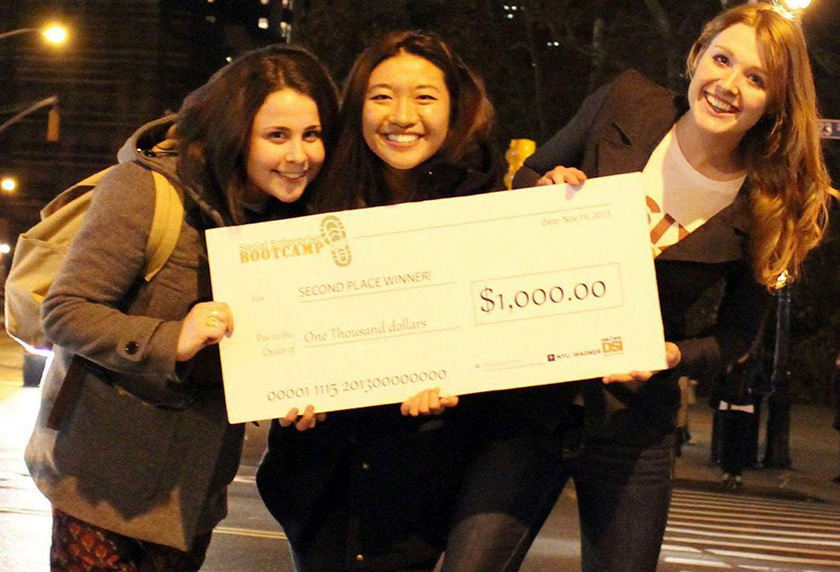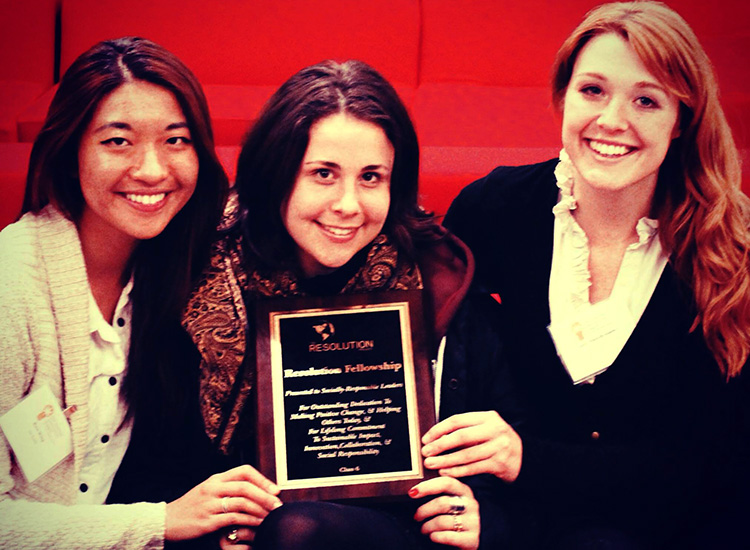Intel STS alumna creates sustainable food made from crickets

Meryl Natow, an Intel STS 2009 semifinalist, was recently named one of Forbes’ 30 Under 30 in the social entrepreneurs sector. She is one of four Society alumni named to the list.
She was always interested in recipes and baking. Meryl, with Laura D’Asaro and Rose Wang, created Six Foods to offer food made from crickets, which have three times more protein and 40 percent less fat than tortilla chips. The chips are also sustainable, requiring less water than cows.
Presenting scientific research to the public — like she did at science fairs — isn’t too scary, Meryl said, especially if you’re passionate about what you’re presenting.
You were recently selected as one of Forbes 30 Under 30 in the social entrepreneurs sector. What does this recognition mean to you?
I am honored and surprised by this recognition! I definitely did not think Six Foods would make the list, which isn’t to say I don’t think we deserve it. We work tremendously hard with passion for and commitment to our cause — hopefully this honor will help raise even more attention for the consumption of insects as a sustainable protein alternative.
How did you first become interested in STEM?
As the child of two doctors (both dermatologists), it was hard not to become interested in STEM. That said, I think my first interest in Science, Technology, Engineering, and Math came in the form of cooking and baking. I’ve always been aware of the strong connection between science and baking, in particular, and enjoy the experimentation that is involved in recipe development.
What was your most memorable experience about science fairs?
Having the chance to present my own scientific work and findings to a large audience of complete strangers was the most impactful experience. As a high school student with the anxieties and inexperience that come with that phase in life, the public presentation taught me that it isn’t all that scary to speak to a crowd, especially if you are passionate about what you are presenting. Plus, it’s a breeze once you start to speak!
Can you provide a short description of your Intel STS research project(s)?
I tested a parent’s willingness to test his/her children for a likelihood of developing a potentially life-threatening disease later in life. I broke the diseases into two categories: breast/prostate cancer, serving as sometimes-fatal yet potentially curable illnesses, and Alzheimer’s Disease, an illness for which we have no known cure. My study revealed that women were interested in testing their children for breast/prostate cancer only and not Alzheimer’s while men wanted to test their children for all diseases.

Has your involvement in Intel STS influenced you to pursue STEM or promote STEM to others?
I will always be a proponent of the studying of science and mathematics. I took many science and math courses in college and continue to have an active interest in the two. The New York Times’ Tuesday Science column remains a favorite of mine.
Do you have other STEM-related projects or goals that you’re pursuing?
I believe that it is not enough simply to study STEM subjects. It is necessary that we use our education to build a better world for our children and our children’s children. That is where my passion for Six Foods lies; I care about our future and making sure that everyone has enough food to eat, and a healthy Earth to inhabit.
What is your advice to young people interested in science and math?
Keep asking “why?”


